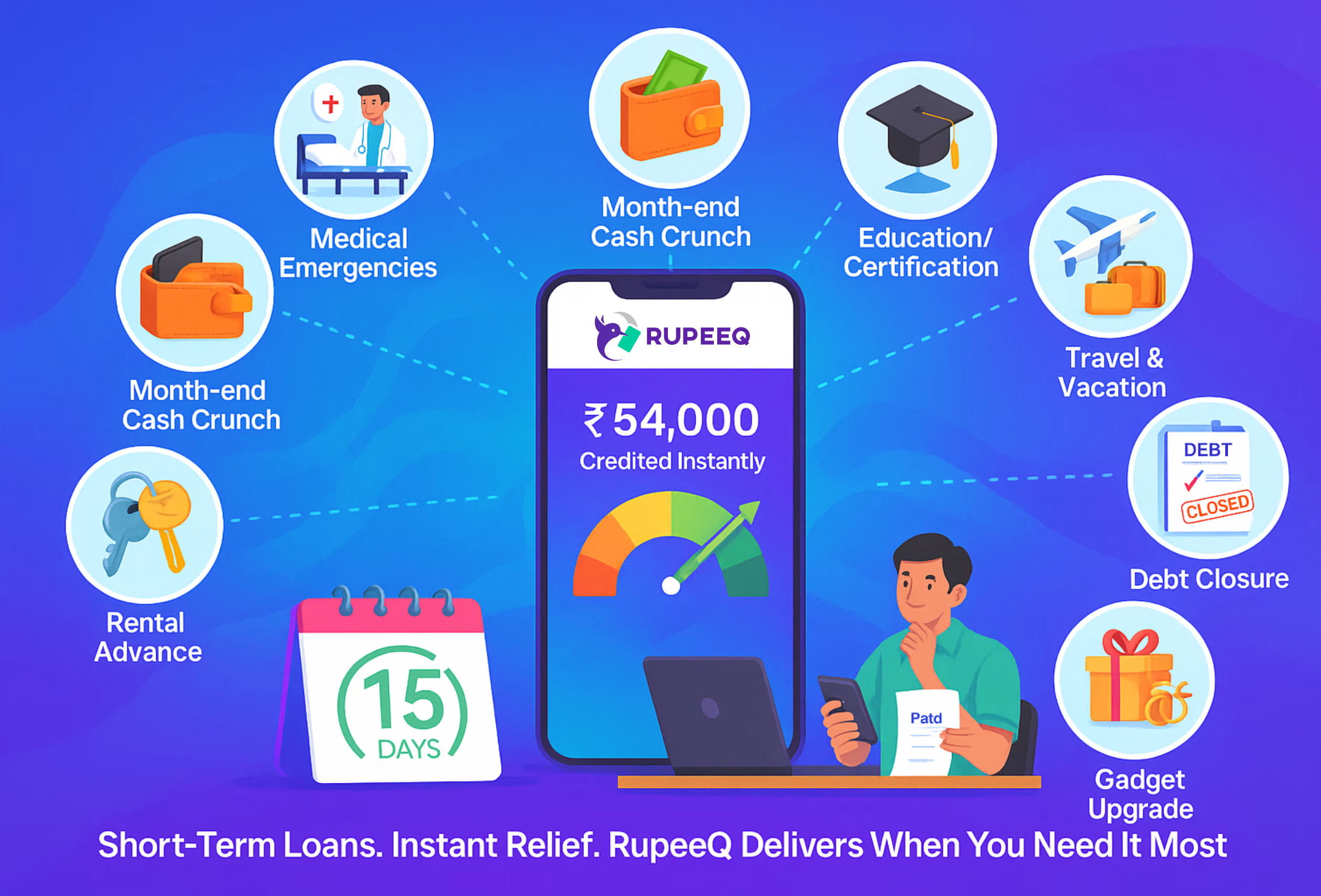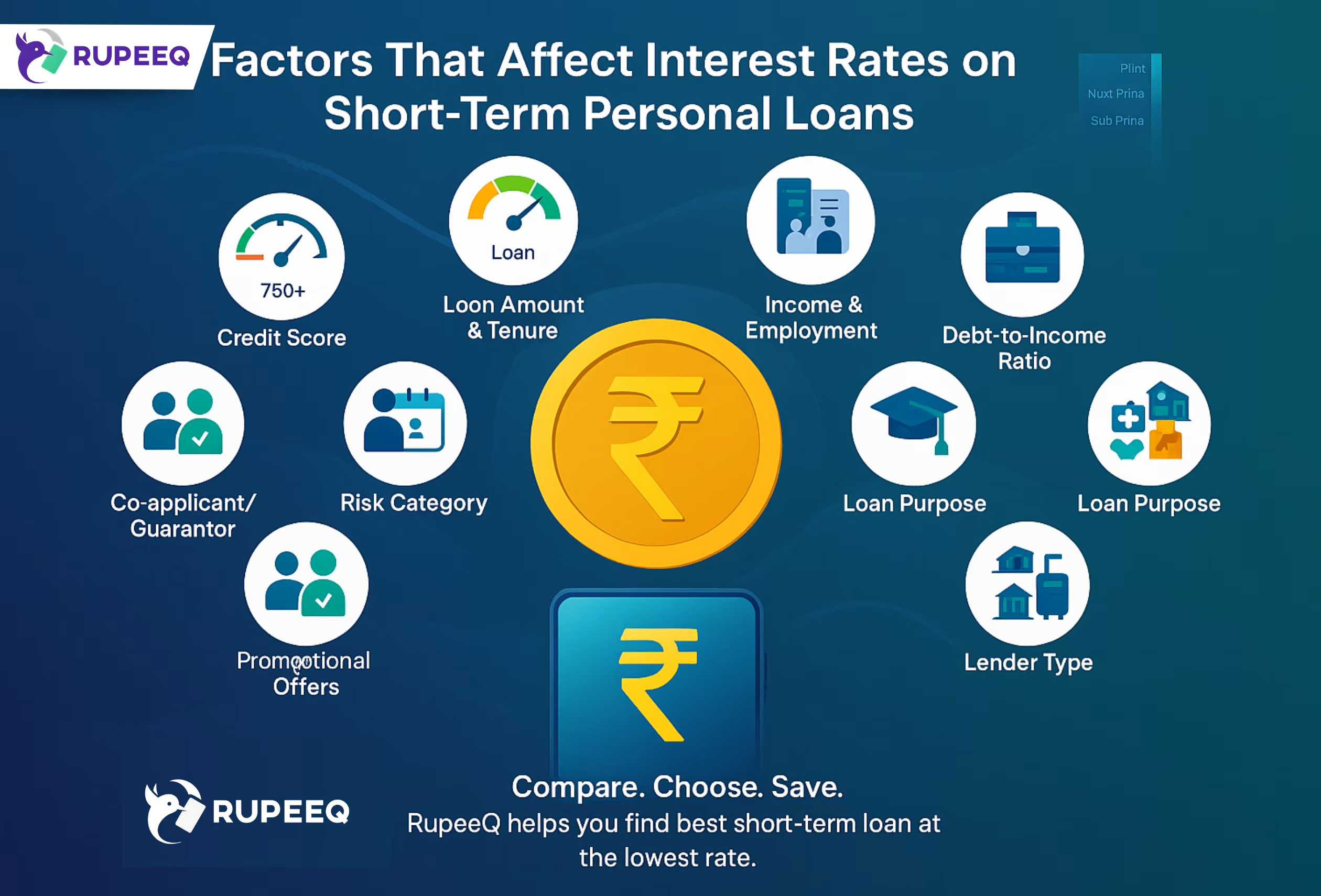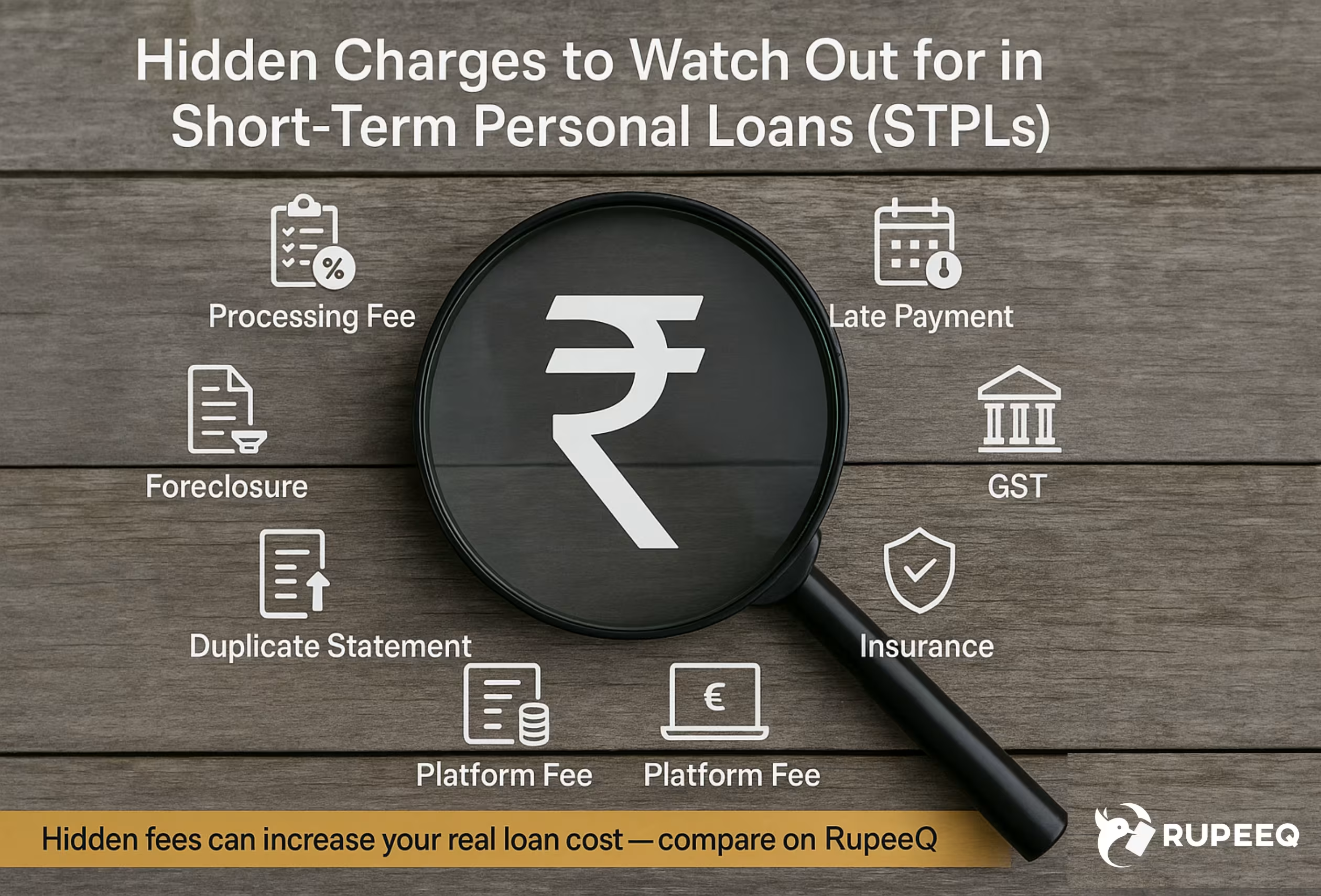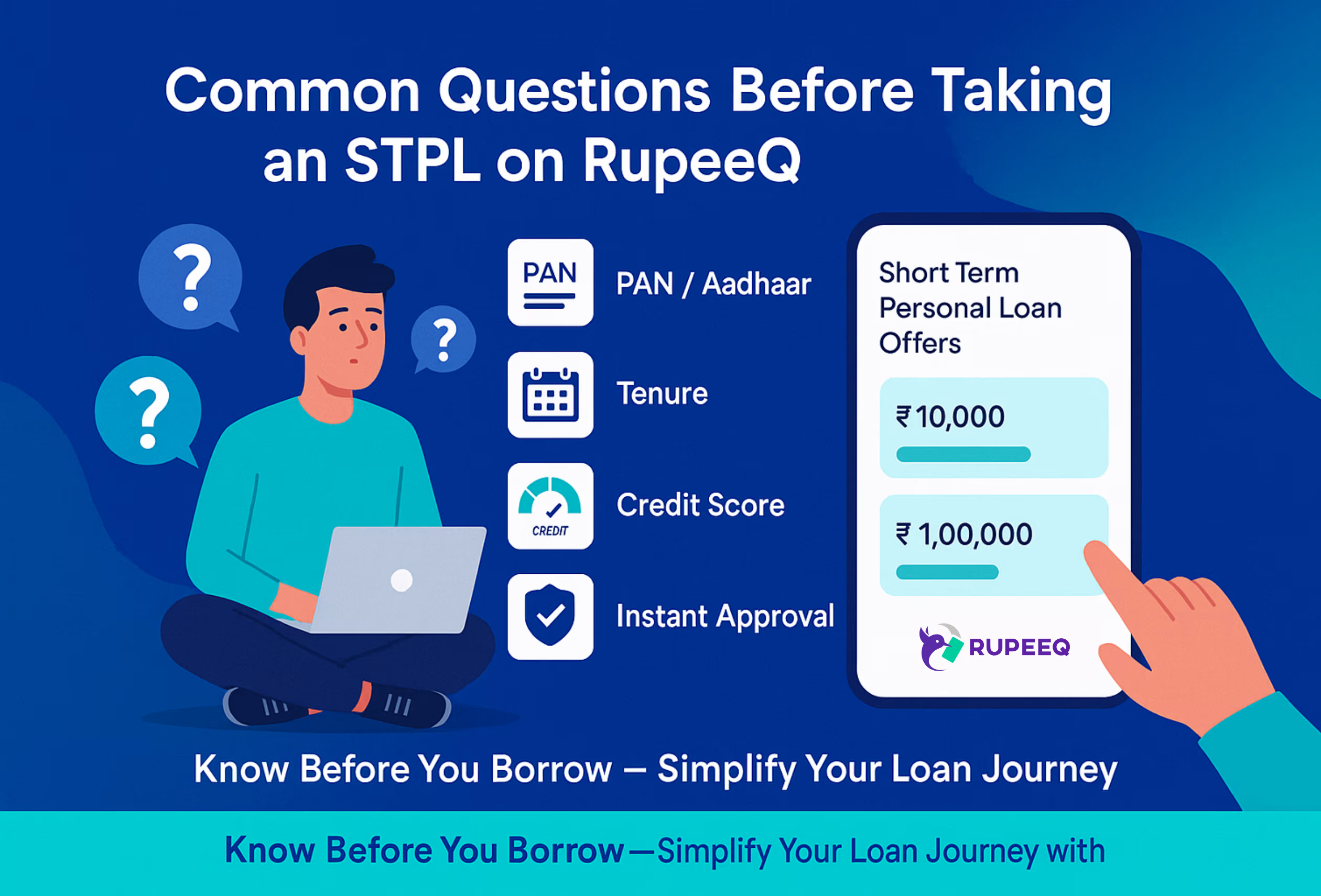Debt can be a heavy burden, especially when you’re juggling multiple credit cards, medical bills, or other loans with varying interest rates and due dates. Debt consolidation is a strategy that can simplify your financial life and potentially save you money. One popular method of consolidating debt is through a personal loan. But is it the right move for you? In this blog, we’ll break down how a personal loan can help you consolidate your debts, the benefits and drawbacks, and what you should consider before taking the plunge.
What is Debt Consolidation?
Debt consolidation involves combining multiple debts into a single loan with one monthly payment. Instead of managing several payments, interest rates, and due dates, you streamline your debt into one more manageable loan. A personal loan is often used for this purpose because it typically offers a fixed interest rate and repayment term.
Example Scenario:
Imagine you have three different debts:
- Credit card 1: ₹50,000 at 18% interest
- Credit card 2: ₹30,000 at 20% interest
- Medical bills: ₹40,000 at 15% interest
In this case, you’re dealing with three separate payments and high interest rates. By taking out a personal loan of ₹1,20,000 at a lower fixed interest rate, you could simplify your payments and potentially save money on interest.
How Does Debt Consolidation with a Personal Loan Work?
Here’s how the process typically unfolds:
- Calculate Your Total Debt: Add up all the debts you wish to consolidate, including credit cards, medical bills, and any other high-interest loans.
- Apply for a Personal Loan: Shop around for a personal loan that offers a lower interest rate than your current debts. Use tools like RupeeQ’s loan comparison to find the best rates.
- Use the Loan to Pay Off Debts: Once approved, use the loan amount to pay off your existing debts in full.
- Make a Single Monthly Payment: Focus on repaying the personal loan over the agreed-upon term with a single, fixed monthly payment.
RupeeQ Tip: Before applying for a personal loan, check your free credit score with RupeeQ ACE. A better credit score can help you qualify for a lower interest rate, maximizing your savings.
Benefits of Using a Personal Loan for Debt Consolidation
Several benefits of using personal loan for debt consolidation are listed below:
a) Lower Interest Rates
One of the main advantages of consolidating debt with a personal loan is the potential to reduce your interest rate. Credit card interest rates can be as high as 20% or more, whereas personal loans often come with lower rates, especially if you have a good credit score.
Example:
If you’re currently paying an average interest rate of 18% on your credit card debt and you qualify for a personal loan at 12%, you’ll save a significant amount on interest over time.
b) Simplified Finances
Managing one loan payment is much easier than keeping track of multiple debts. You’ll have a clear repayment schedule, making it less likely to miss payments and incur late fees.
c) Fixed Repayment Terms
Personal loans come with fixed repayment terms, which means you’ll know exactly when your debt will be paid off. This is a huge advantage over revolving credit card debt, where the balance can linger for years if you only make minimum payments.
Potential Drawbacks of Debt Consolidation with a Personal Loan
While debt consolidation has many benefits, it’s not without potential downsides:
a) Higher Monthly Payments
While a personal loan may reduce your overall interest, it could also come with higher monthly payments, especially if you choose a shorter loan term. Ensure you can handle the payment amount without straining your finances.
b) Loan Fees and Charges
Personal loans may come with processing fees, prepayment penalties, or other charges that could eat into your potential savings. Be sure to read the fine print and calculate the total cost of the loan.
RupeeQ Tip: Compare loan offers carefully, considering not just the interest rate but also the total cost, including fees.
c) Risk of Accumulating More Debt
Consolidating your debt can free up your credit cards, making it tempting to run up balances again. If you’re not disciplined, you could end up in a worse financial situation with more debt than you started with.
Solution: Create a strict budget and avoid using credit cards until you’ve significantly paid down your consolidated debt.
Who Should Consider a Personal Loan for Debt Consolidation?
Debt consolidation isn’t the right choice for everyone. Here are some scenarios where it may be beneficial:
- You Have High-Interest Debt: If most of your debt is on high-interest credit cards, a personal loan with a lower interest rate can save you money.
- You Have a Good Credit Score: A higher credit score will increase your chances of qualifying for a low-interest personal loan.
- You Struggle to Manage Multiple Payments: If you find it hard to keep track of multiple debts and due dates, consolidating them can simplify your financial life.
RupeeQ Tip: If your credit score isn’t where you’d like it to be, consider waiting and working on improving it before applying for a loan. RupeeQ ACE provides personalized tips to help you boost your score.
Steps to Take Before Applying for a Debt Consolidation Loan
- Assess Your Financial Situation: Review your income, expenses, and total debt to determine if debt consolidation is the right move.
- Calculate Potential Savings: Use RupeeQ’s loan comparison and EMI calculator tools to see how much you could save on interest.
- Avoid Taking on New Debt: Commit to not adding to your debt load during the loan repayment period.
- Compare Lenders: Shop around for the best personal loan offers. Consider banks, credit unions, and online lenders.
- Have a Repayment Plan: Make sure you have a realistic plan to pay off the loan within the term agreed.
Alternatives to Debt Consolidation Loans
If a personal loan isn’t the best option for you, consider these alternatives:
- Balance Transfer Credit Cards: If you have good credit, a balance transfer card with a 0% introductory APR may help you save on interest.
- Debt Management Plan: Work with a credit counseling agency to create a structured plan to pay off your debt.
- Home Equity Loan: If you own a home, you may be able to use your equity to consolidate debt. However, this puts your home at risk if you can’t make payments.
RupeeQ Tip: Weigh all your options before deciding on a debt consolidation method. Each option comes with its own set of risks and benefits.
Final Thoughts: Is a Personal Loan for Debt Consolidation Right for You?
A personal loan can be a powerful tool for consolidating and paying off debt, but it’s not a one-size-fits-all solution. Carefully consider the pros and cons, calculate potential savings, and make sure you have a repayment plan in place.
Remember, debt consolidation is only effective if you commit to responsible financial behavior. Avoid accumulating new debt, stick to a budget, and stay focused on your goal of becoming debt-free.







